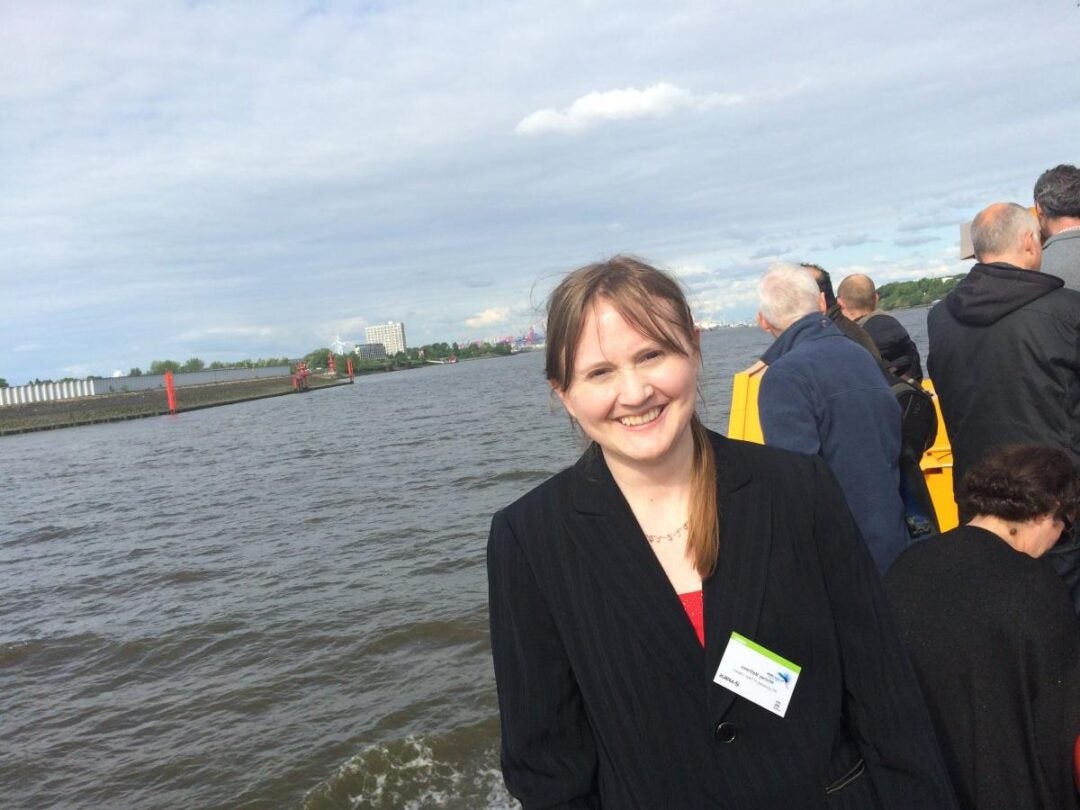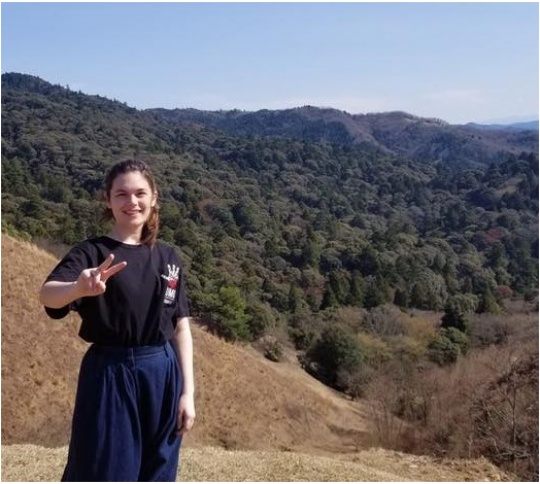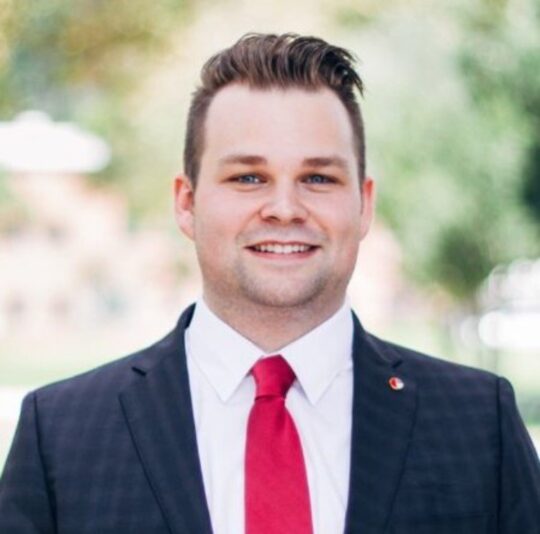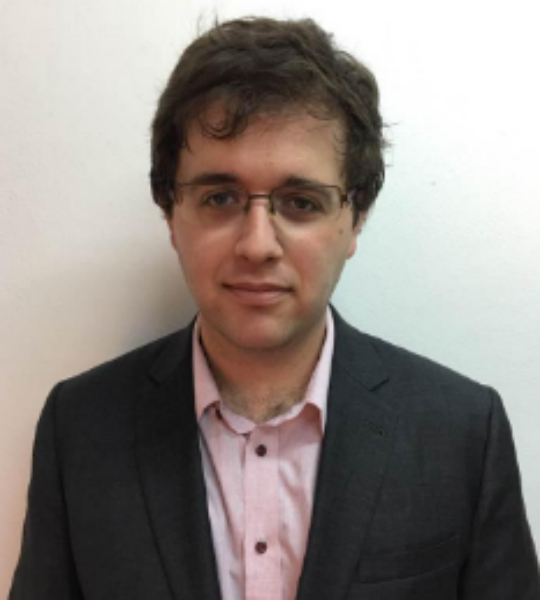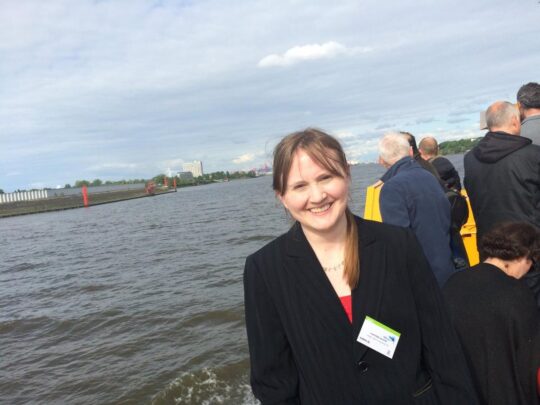Read below to see what some of our EALC undergraduate alumni are up to now:
Edith Conn
I spent most of my time at USC outside of USC. For me, the most important goal I had for my undergraduate experience was studying abroad. Now, looking back on the past four years, I can say I achieved that goal. During my sophomore year, I participated in EASC’s Global East Asia-China PWP, and in my junior year, I received the NSEP Boren Scholarship and spent the entire year in Nagoya, Japan. The summer after Japan, I was back in China for the Exploring China program at Tsinghua University. Now while I had spent years studying Japanese and preparing for my study abroad experiences, I can’t say my times spent studying abroad were the only impactful experiences I had at as a student. During my time at USC, I conducted research for several professors in the IR department, worked at my second major’s office, EALC, for three years, joined the International Relations and Foreign Service fraternity, DPE, became president of the Japanese Student Association, and I made so many strong and long-lasting friendships along the way. I will say, however, that studying abroad has influenced me to continue a career path in East Asian languages and foreign affairs.
Even though I’ve graduated, I still plan to continue my Japanese studies. This summer, I’m heading to Okayama, Japan to participate in the Critical Language Scholarship and take intensive Japanese language courses for two months. Afterwards, my goal is to pursue a master’s degree in international policy in East Asia. I hope to use this degree for a career in government or INGO work. I have my study abroad experiences to thank for this career aspiration and for the motivation to continue working towards international involvement.
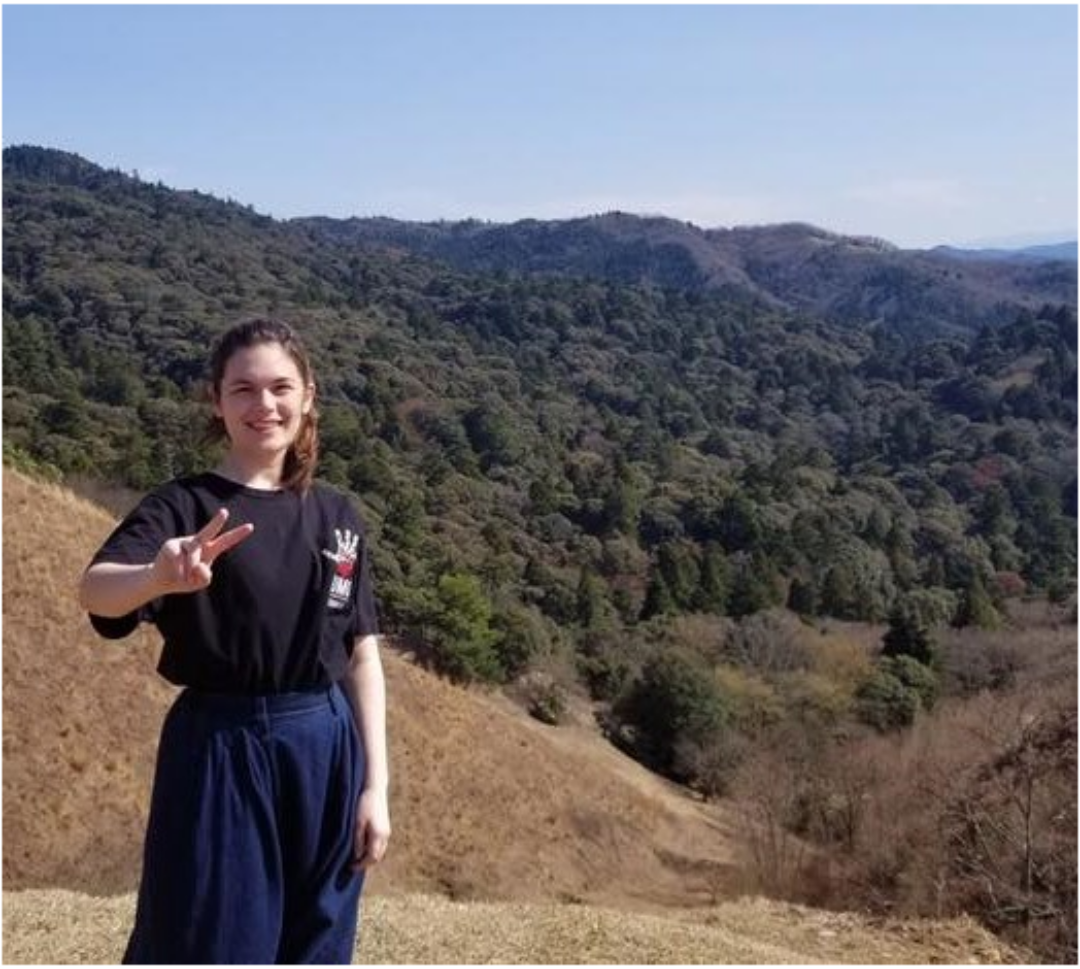
John Carlson
John Carlson, currently Product Manager for Merck Biopharma’s Japan subsidiary, graduated in 2015 with a dual degree in EALC and Biochemistry. In 2016, he completed his Masters degree in Regulatory Science at USC’s school of Pharmacy focusing on international drug development.
During his undergraduate career, John found the opportunity to explore his passion for both East Asia and science, eventually melding what may seem like two very disparate topics into a career in Japan’s biopharmaceutical industry. He credits much of his success to his cross-disciplinary education at USC, where he had many opportunities particularly through the Zilkha Neurogenetic Institute and the Global East Asia Japan program, and also as a FLAS fellow (Foreign Language Area Studies) during a year abroad at Waseda University.
John began his career in Washington, DC as part of the Government Affairs & Policy team for the U.S. affiliate of Merck KGaA, EMD Serono. While completing the 2nd year of his Masters program as a distance student, he relocated to Tokyo where he continued his work in government affairs. Shortly thereafter, he moved to the commercial side of the business as head of the Japan Strategy Realization Office of Merck, where he led the creation of the company’s five-year strategy and drove the implementation of a new “winning” culture.
In his current role as product manager, he is responsible for the marketing activities of Merck’s fertility portfolio, and is overseeing the launch of two new products that further solidify the company’s position in the Japanese market.
When reflecting on the most valuable resource at USC as a EALC major, John points to the support of the departments’ leadership and their willingness to allow students to pursue non-traditional education paths that add real value to their future career, equipping students with the skills necessary to be successful. He also praises USC’s alumni network, and as alumni have done for him, encourages any current or prospective students to reach out to him through LinkedIn.
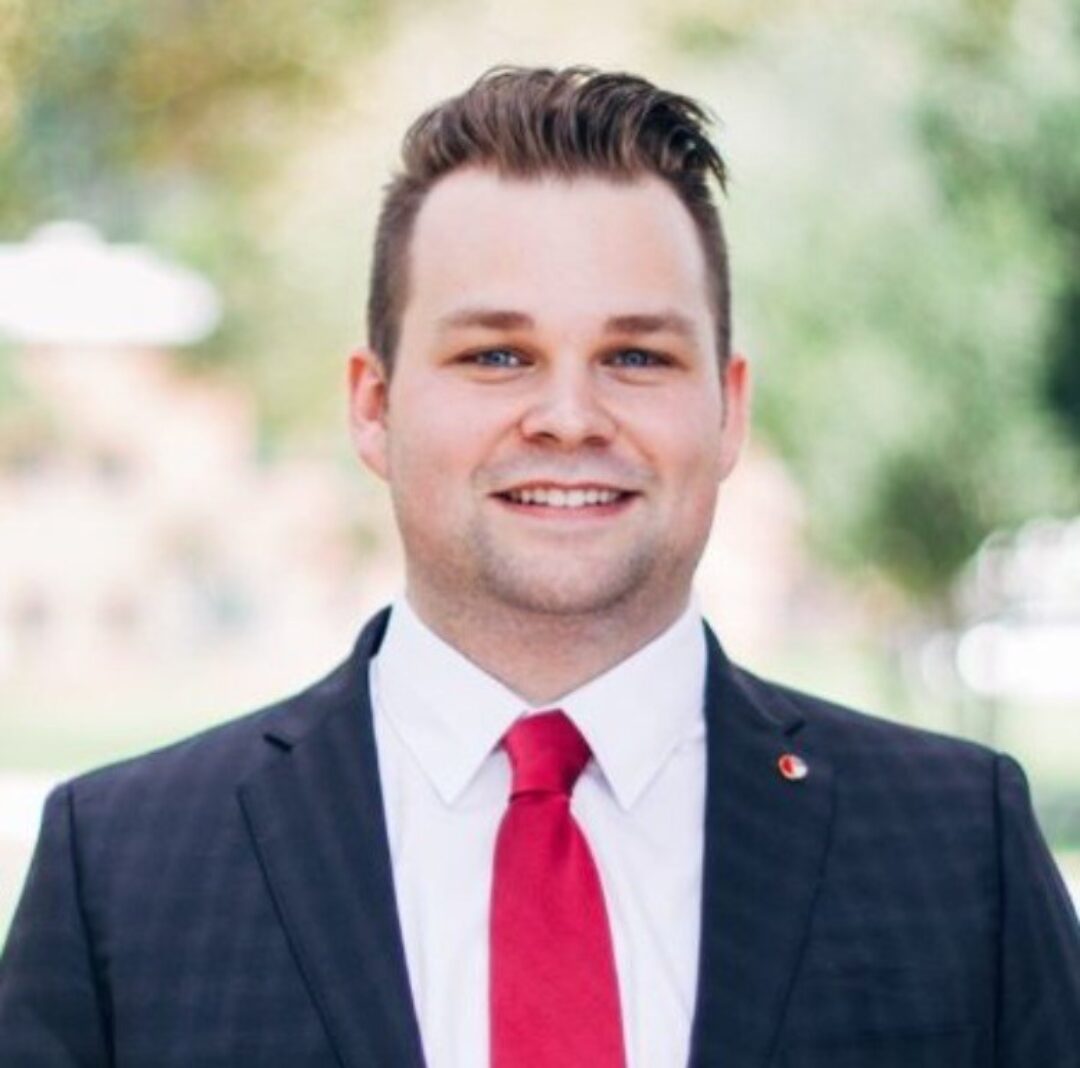
Bradley Gardner
I first went to China as an undergraduate student in 2003, on a study abroad program that completely changed how I saw the world. China was in the middle of the most successful poverty alleviation program in human history, and I got to be on the ground to talk to people whose lives were being up-ended, watch neighborhoods being bulldozed and built over, hang out with rich kids who dropped out of school to be punk rockers, and poor kids whose entire village put money together to send them to school. China was transforming before my eyes from one of the world’s poorest countries to a middle-income country and a global economic power. I was mesmerized.
I got the opportunity to go back to China in 2007. In the intervening four years, I studied in Japan at Tokyo International University and Taiwan Normal University, got a master’s degree from the University of Chicago, and spent a year as a journalist in the Czech Republic. When a friend of mine from my Beijing-days mentioned that there was a job opening at a Beijing-based business magazine I jumped at it. For the next six years, I worked as a journalist and, after 2010, as a researcher for the Economist Group, talking to people who had lived through the Chinese economic miracle, learning what they had done and how their lives had changed, and then comparing their individual stories to the broad brush portrait painted by the economic data. This work eventually turned into a book, China’s Great Migration: How the Poor Built a Prosperous Nation, which tells the story of China’s economic miracle from the point of view of the more than 265 million economic migrants who have moved from rural areas to the city over the past two decades.
I joined the State Department in 2014 as a Foreign Service Officer. As a writer, my goal was always to make sure decision makers had good information, and I felt I could do that effectively for the U.S. government. After nearly 10 years abroad, I also knew I was comfortable, maybe happier, being on the move.
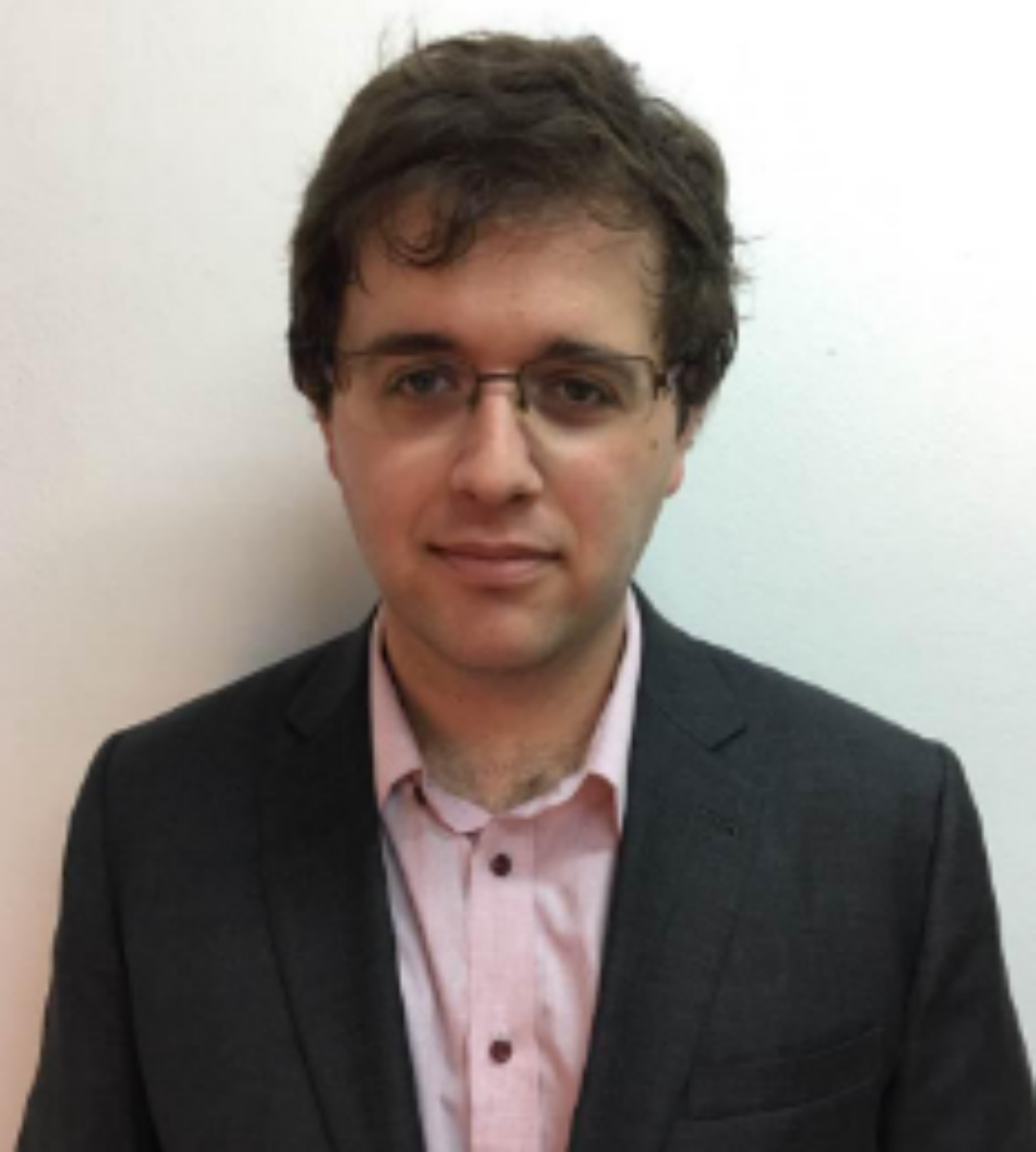
Whitney Matthews
Going to USC was an eye-opening experience for this small-town Georgia girl. During my freshman year, I lived in Parkside International Residential College, which made it easy for me to meet and become friends with people from all over the world and attend internationally-themed events. I majored in EALC (with a focus on Japanese) and minored in International Relations. One great aspect of the Japanese language classes in particular was the small class setting which allowed each student to get plenty of help from the instructors. Also, in the advanced language classes, the material was largely left up to the students; we would each pick a topic in which we were interested and give presentations on it in Japanese, followed by discussions with the instructor and fellow students. I feel like these classes, and the attentive instructors who taught them, were vital in helping me achieve Japanese fluency. I also liked the well-rounded approach USC took to undergraduate education. In addition to classes related to my major and minor, I enrolled in a wide range of classes including Oceanography, Chess and Critical Thinking, and Electronic Synthesizer Techniques!
I studied abroad at Waseda University in Tokyo for my junior year, living with a host family and further enhancing my knowledge about both Japan and the rest of the world. After graduating from USC in 2008, I returned to Waseda as a graduate student, earning my Master’s degree in International Relations in 2010. Since then, I have been working and living in Tokyo. I currently work at the University of Tokyo, where I help manage the University’s English website and social media, while also writing original articles, translating existing articles, interviewing students/faculty/alumni, and doing other such public relations work. This picture is from a business trip I took to Germany in 2015.
